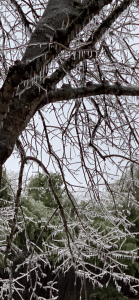 The Center for Teaching Excellence and the Instructional Technology Department invite all faculty to participate in the May 2024 Innovation Institute Workshops, which are part of the larger Innovation Institute attended by the 2024 Innovation Fellows. All workshops will take place in Trustee 118, except for workshop 5, which will be held on Zoom.
The Center for Teaching Excellence and the Instructional Technology Department invite all faculty to participate in the May 2024 Innovation Institute Workshops, which are part of the larger Innovation Institute attended by the 2024 Innovation Fellows. All workshops will take place in Trustee 118, except for workshop 5, which will be held on Zoom.
Sign-Up: TBD
Workshop 1: Finding and Adapting Open Educational Resources (OER)
Monday, May 20 1:00-2:30 pm
Looking for course materials that better fit your course goals, better represent your students, and save students money? Delve into practical techniques for finding, evaluating, and utilizing open educational resources. Identify OER course materials, assess gaps, and experiment with using generative AI to create supplementary materials. Participants should bring a course syllabus and/or learning outcomes and a laptop.
Workshop 2: Student Readiness & Hidden Curriculum
Tuesday, May 21, 1:00-2:30 pm
What does it mean to be ready for college? How do students know? In this session, we’ll talk about student readiness and the hidden curriculum of college, from syllabi to self-advocacy. Participants in this session will have some time to think about what expectations of college are often unspoken, and then, we’ll work on crafting small, intentional ways to help students make the transition from high school to college and adolescent to adult.
Workshop 3: Teaching Generative AI
Thursday, May 23, 10:30 am-12:00 pm
Our students are facing a world where they must know how to harness generative AI tools to solve problems. How can we help them develop these skills? In this workshop, faculty from different disciplines will work together to develop effective generative AI teaching approaches, assignments, and a shared understanding of generative AI literacy at St. Edward’s. Participants should come with a specific course and learning outcomes in mind. Bring a laptop!
Workshop 4: Scaffolding and Skill Building
Tuesday, May 28, 1:30-3:00 pm
We often talk about scaffolding student learning, but what does that really look like in practice? In this workshop, we’ll talk about how to break down course goals into smaller components and think through the skills needed to accomplish the bigger goal. Participants should leave this session with an approach to scaffolding and a concrete plan for integrating skill building into the curriculum.
Workshop 5: Maximizing Canvas for Seamless Learning and Engagement
Wednesday, May 29, 1:00-2:30 pm on Zoom
Discover how to utilize Canvas to create an engaging and seamless learning experience for your students. From optimizing course organization and communication channels to refining grading practices and leveraging analytics and third-party tools, this workshop will help you enrich your students’ experience in Canvas. Join us on this journey to unlock the full potential of Canvas and create an environment where every student can thrive!


